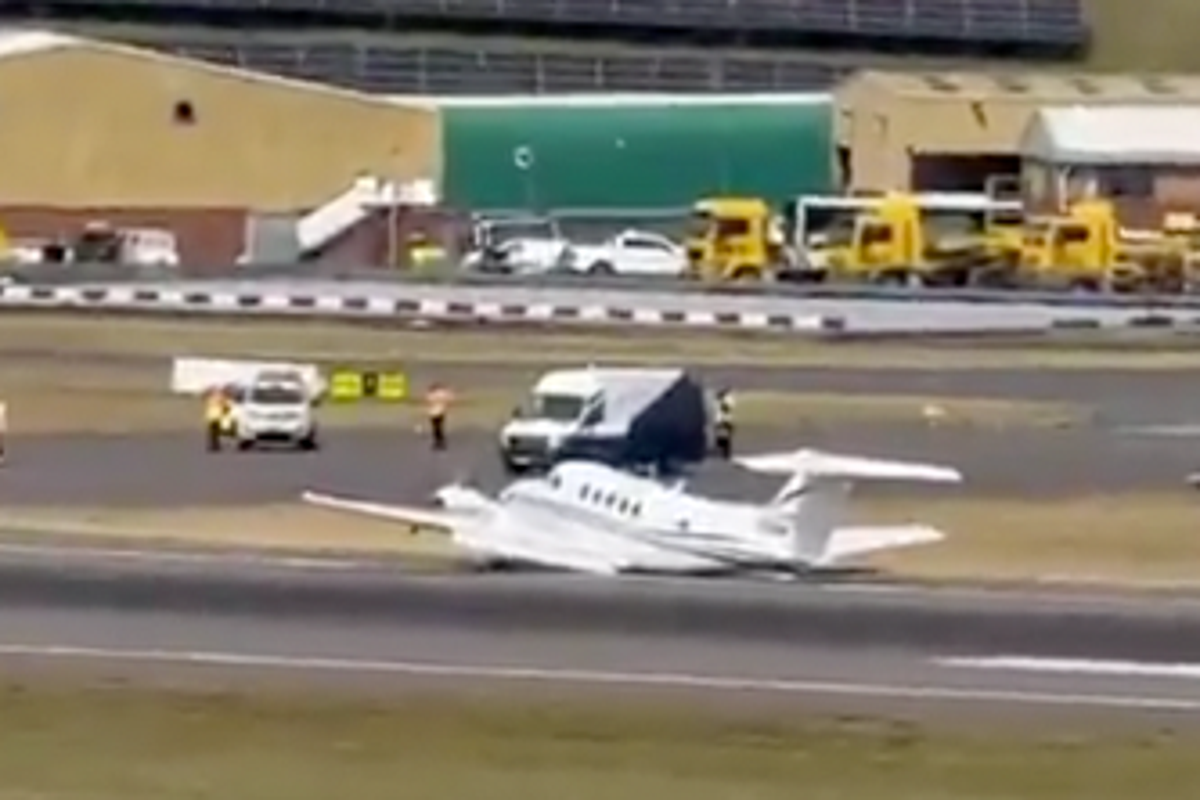Flight Buzz
Australia Deepens Strategic Travel Collaboration With India Through Marketplace 2025, Backed By Direct Flights, Digital Visas, And Targeted Campaigns

Tuesday, August 5, 2025
Australia is intensifying its strategic travel partnership with India through Marketplace 2025, a flagship tourism trade event designed to boost two-way visitor flows, strengthen industry ties, and drive economic growth. Backed by a growing network of direct flights, simplified digital visa processes, and highly targeted promotional campaigns, this initiative aims to tap into India’s rapidly expanding outbound travel market while positioning Australia as a top leisure and business destination for Indian travelers.
Australia is actively deepening its engagement with India’s booming outbound travel sector through the 19th edition of Australia Marketplace India (AMI), hosted by Tourism Australia from August 3 to 6 in the culturally rich city of Jaipur. This flagship business-to-business platform connects over 100 Indian travel buyers with 82 leading Australian tourism operators, paving the way for stronger collaboration and broader awareness of Australia as a premier long-haul travel destination.
This year’s event marks a significant expansion in participation from both sides, reflecting growing interest in luxury, family, and immersive travel from Indian consumers. Indian travel agencies have turned out in strong numbers to enhance their destination knowledge and build new partnerships, while Australian businesses have showcased a diverse range of tourism experiences – including accommodations, attractions, tour services, adventure experiences, and regional tourism boards.
Tourism Australia continues to position India as one of its highest-potential markets, targeting a new wave of affluent Indian travellers who seek premium holidays, authentic experiences, and seamless accessibility.
Targeted Campaigns Drive Demand in the Indian Market
Tourism Australia has developed a focused strategy to align with the changing travel interests of Indian audiences. Through a series of innovative marketing initiatives, it has spotlighted Australia’s diverse tourism experiences — including scenic coastal drives, wildlife adventures, vineyard escapes, gourmet journeys, and authentic Indigenous cultural attractions. These dynamic campaigns have significantly boosted Australia’s visibility and appeal among both new Indian travellers and returning visitors.
By adapting content and promotions specifically for Indian audiences, Tourism Australia continues to boost engagement across digital platforms, media outreach, and influencer content. These efforts aim to position Australia not only as an aspirational vacation destination but also as one that offers authentic, multi-generational and experience-rich holidays for Indian travellers.
Better Accessibility through Direct Flights and Digital Visas
India and Australia have made significant strides in improving travel access. The growing network of direct flights between major Indian cities and Australian hubs has greatly reduced travel time and increased travel convenience. Several international carriers now offer direct connectivity, allowing travellers to bypass long layovers and reach Australia with ease.
In parallel, the fully digital Australian visa system has transformed the pre-travel process, giving Indian travellers faster and more streamlined access to the country. These improvements have removed traditional barriers to long-haul travel, encouraging both leisure and business travellers from India to choose Australia over other destinations.
The combination of more flight options and faster visa processing has led to increased confidence among Indian travellers, who now view Australia as more reachable, practical, and welcoming.
The Indian Diaspora and Education Sector Reinforce Travel Ties
Australia’s rapidly expanding Indian diaspora continues to act as a major driver of tourism. With nearly one million residents of Indian origin and over 100,000 Indian students currently studying in Australia, the strong people-to-people ties between the two countries provide a consistent source of travel activity. Family visits, academic exchange, and social reunions ensure repeat visits and drive interest in new experiences across regions.
The community influence also helps Indian travellers feel a sense of familiarity, comfort, and cultural alignment with Australia. From Indian cuisine options and religious sites to inclusive festivals and multicultural cities, Australia’s hospitality landscape continues to evolve to accommodate the expectations of Indian visitors.
Upskilling Indian Agents Through Specialist Programs
Tourism Australia is heavily investing in the capacity-building of Indian travel professionals through structured trade engagement programs. The Aussie Specialist Program (ASP) serves as the foundation for training over 3,000 certified Indian agents, providing them with the knowledge and tools required to promote Australia with authority and insight.
Through platforms such as the Trade Resource Hub and Australia 365 On Demand, agents gain access to on-demand modules, product updates, destination videos, and itinerary-building resources. These platforms help agents remain competitive and informed in a fast-changing global travel market.
Tourism Australia also recognises top-performing agents by awarding them with the Premium Aussie Specialist designation. These elite professionals lead the way in selling high-value, experiential Australia travel products and serve as go-to consultants for Indian travellers seeking personalised and immersive itineraries.
Additionally, global trade events like the Australian Tourism Exchange and G’Day Australia offer Indian frontline agents and product developers the chance to experience Australia in person, further enriching their understanding of the destination.
Visitor Growth Reflects Market Maturity and Spending Power
India now stands among Australia’s top international tourism markets, securing the position of fifth-largest source country for inbound travel in the year ending May 2025. Data from the Australian Bureau of Statistics (ABS) shows that 453,000 travellers from India visited Australia during this period, reflecting a 10% growth compared to the previous year’s figures.
Indian travellers are not only arriving in greater numbers but also spending more. For the year ending March 2025, total spending by Indian tourists in Australia reached AUD 2.7 billion, representing a 14% rise from the previous year. This strong performance underscores the increasing value of the Indian market, particularly in the high-yield category.
Tourism Australia continues to prioritise long-term investment in this space, recognising the Indian market’s growing sophistication, spending capacity, and appetite for bespoke travel experiences.
A Shared Vision for the Future of Travel
The 19th edition of Australia Marketplace India affirms the joint commitment of both countries to develop sustainable, profitable, and culturally meaningful tourism links. As travel continues to rebound, the Australia-India tourism corridor stands out as a symbol of growth, opportunity, and mutual benefit.
Australia is strengthening its travel ties with India through Marketplace 2025, leveraging direct flights, digital visa access, and targeted campaigns to tap into India’s booming outbound tourism market and boost mutual visitor growth.
By bringing together trade professionals from both nations, the Jaipur event has not only driven business conversations but also strengthened the foundation for future tourism expansion. As Indian travellers seek more meaningful and premium international experiences, Australia remains strongly positioned as a destination that delivers on quality, diversity, and value.
Flight Buzz
How a 41-minute flight closed one of the UK’s busiest airports

Thousands of passengers are facing travel delays and disruption after all flights were suspended from Birmingham Airport due to an “aircraft incident”.
The incident is believed to have involved a light aircraft whose landing gear would not deploy as it tried to travel to Belfast around 1pm on Wednesday.
At least 18 flights have since been diverted. Birmingham Airport’s website crashed not long after passengers were told to check their flight status.
The airport, which is the UK’s seventh busiest, registered a 12 per cent increase in passenger numbers in 2024 to reach 12.85 million. It is expected that this will be the busiest ever summer for the West Midlands hub, as easyJet joins the growing number of airlines to set up base at Birmingham.
As the situation unfolds, here is what we currently know about the disruption at Birmingham Airport.
Passengers at the airport have been advised to check their flights (PA Archive)
What happened?
It is believed that the aircraft involved was a Beechcraft B200 Super King Air twin turboprop light aircraft, which belonged to Woodgate Aviation, self-described as a leading provider of corporate, business, private and general aviation services in Northern Ireland since 1969.
The flight, which is believed to have been heading to its home base of George Best Belfast City, took off at 1.16pm according to data on FlightRadar24. It climbed to 5,750 feet and almost immediately entered a holding pattern.
At 1.35pm the aircraft overflew the runway at just 300 feet, but it remains unclear if the pilot was attempting to land or enabling air traffic controllers to inspect the undercarriage. FlightRadar data shows the aircraft made contact with the ground at 1.57pm.
It is currently not known what caused the incident.
The flight appeared to overfly the runway at just 300 feet (FlightRadar24)
Is anyone injured?
One person has suffered minor injuries after the small aircraft made an emergency landing at Birmingham Airport, according to West Midlands Police.
Birmingham Airport Police said on social media: “We are at Birmingham Airport this afternoon after a small aircraft was involved in an emergency landing at around 1.40pm.
“Officers are among the emergency crews at the scene and one person has been reported to have minor injuries.
“The Civil Aviation Authority has been informed and the airport has suspended operations as an investigation is carried out.”
West Midlands Ambulance Service said three people were treated and discharged at the scene.
A spokesperson said: “We were called at 1.45pm to an incident involving a light aircraft at Birmingham Airport. Hazardous Area Response Team paramedics and three paramedic officers were sent to the scene. Upon arrival we found three patients from the aircraft, all of whom were assessed and discharged at the scene.”
One person has suffered minor injuries, according to police (SpursSingh/X)
What flights have been delayed?
The last flight to touch down before the closure was the Ryanair flight from Perpignan, which landed at 1.52pm. Two minutes later, an easyJet flight to Tenerife took off.
Incoming flights were diverted to alternative airports immediately after the runway was shut down. Here are all the diversions we are aware of so far:
-
East Midlands: Air France from Paris, Ryanair from Murcia, Jet2 from Kalamata, Preveza and Mahon, Tui from Rhodes.
-
Manchester: Jet2 from Lanzarote, Malaga and Faro, Ryanair from Bucharest, Turkish Airlines from Istanbul, Tui from Kos.
-
London Stansted: Ryanair from Malaga and Palma, Jet2 from Skiathos.Luton: Jet2 from Kefalonia, easyJet from Corfu and Heraklion.
In addition, an Aer Lingus Regional aircraft from Belfast City was about halfway across the Irish Sea when it turned back to its starting point.
The Brussels Airlines flight from the Belgian capital has been cancelled, along with the return leg from Birmingham.
Is the airport website still down?
Birmingham Airport website crashed as people flocked to check their flight status (Birmingham Airport)
Not long after Birmingham Airport advised passengers to check their flight status, the website for Birmingham Airport went down down, replaced by an error code. It remains unclear just what has happened to the online platform, but it is back up and running
What has Birmingham Airport said so far?
The airport operator announced on social media around 2.40pm that the runway was temporarily closed following an “aircraft incident”.
“Following an aircraft incident, the runway is temporarily closed,” the airport said in a statement on X posted shortly after 2.40pm on Wednesday.
“We apologise for the inconvenience this will cause.
“We will keep passengers already at the airport informed and those due to travel later today are advised to check the status of their flight before coming to the airport.
“We will continue to issue updates when we can.”
Flight Buzz
Pegasus Airlines Bans Power Banks During Flights for Safety: Turkey’s New Regulations Reflect Growing Concerns Over Lithium-Ion Battery Risks in Aviation

Wednesday, August 6, 2025
Author: TTW News Desk
In a move aimed at enhancing flight safety, Turkish low-cost carrier Pegasus Airlines has introduced a significant policy change regarding the use of portable power banks during flights. The new regulation, which restricts passengers from using power banks during flights, has garnered attention amid growing concerns over the potential fire risks associated with lithium-ion batteries. Passengers are still allowed to carry power banks in their hand luggage, but with strict guidelines to ensure safety. This policy adjustment is part of a broader initiative by Turkish airlines, including Pegasus, to address the growing threat posed by devices powered by lithium batteries.
The decision follows several high-profile incidents globally, as well as a recent emergency involving Asiana Airlines. This evolving trend underscores the airline industry’s heightened awareness of the dangers these devices can pose in-flight, especially when batteries overheat or are improperly stored. As air travel resumes at full capacity, the move by Pegasus Airlines and other Turkish carriers highlights a critical step towards bolstering safety measures to prevent potential disasters mid-flight. The policy aligns with international standards while incorporating localized regulations aimed at ensuring a safer travel experience for passengers.
New Power Bank Regulations by Pegasus Airlines
- Ban on Power Bank Usage During Flights: Passengers are no longer allowed to use portable power banks during flights, though they can still carry them in their hand luggage.
- Packing Requirements: Power banks must be properly packed according to the airline’s guidelines. This ensures that they do not pose a risk of overheating or fire during the flight.
- Growing Concerns Over Lithium Batteries: The policy follows increased safety awareness surrounding lithium-ion batteries, which are widely used in power banks and other electronic devices.
The Rising Safety Concerns Around Lithium-Ion Batteries
Lithium-ion batteries, found in devices like power banks, laptops, and smartphones, have become a central point of concern for airlines and aviation safety regulators. The primary issue is the risk of overheating, which can lead to fires or even explosions. These incidents, although rare, can be catastrophic in-flight. According to experts, when these batteries overcharge, become damaged, or are exposed to extreme temperatures, they can catch fire, potentially leading to serious consequences for passengers and crew alike.
Pegasus Airlines’ decision to ban the use of power banks during flights is a proactive measure in response to these risks. While passengers can still bring power banks aboard, the airline’s strict guidelines on their storage ensure that these devices are securely packed in a way that minimizes the risk of fire.
This change is particularly important as the global aviation industry has seen an increase in the number of passengers carrying electronic devices. As such, airlines around the world have been tightening their rules regarding devices that are powered by lithium-ion batteries, with the goal of reducing the possibility of in-flight incidents.
International Responses to Lithium Battery Concerns
Pegasus Airlines is not alone in implementing stricter safety measures. Several other airlines, both in Turkey and internationally, have followed suit by restricting the use of high-capacity power banks and electronic devices with built-in lithium-ion batteries.
- Turkish Airlines: Just last week, Turkish Airlines imposed a ban on “smart luggage” containing non-removable lithium batteries. The new rule prohibits such bags from being checked in, though passengers may carry them as hand luggage if they remove the lithium battery beforehand. The battery must be stored separately in original packaging or a plastic sleeve to prevent any short circuits.
- Global Airlines: Many other international airlines, such as American Airlines, Delta, and Lufthansa, have similar restrictions in place. These airlines often allow power banks and electronic devices onboard but impose limits on their capacity. High-capacity power banks, in particular, are often banned from being used during flights.
The Asiana Airlines Incident: A Catalyst for Change
The recent safety incident with Asiana Airlines has further accelerated the need for stricter regulations. During a flight from Istanbul to Seoul, an emergency arose after a passenger dropped their power bank between seats. This incident raised significant safety concerns about the potential for battery overheating and the risk of fire mid-flight. The airline had to turn back midair over Kazakhstan as a precautionary measure, which underscored the need for tighter safety protocols regarding lithium-powered devices.
Following this event, Turkey’s Directorate General of Civil Aviation recommended that local carriers adopt measures similar to those implemented by Pegasus Airlines. The response was swift and coordinated, highlighting the importance of ensuring aviation safety as air travel volumes continue to rise.
The Role of Turkey’s Civil Aviation Authority
In Turkey, the Directorate General of Civil Aviation (DGCA) plays a crucial role in regulating airline safety policies. In the wake of the Asiana Airlines incident, the DGCA worked closely with airlines like Pegasus to implement new safety protocols that specifically address the risks posed by portable power banks and lithium-ion batteries.
Abdulkadir Uraloğlu, Turkey’s Minister of Transport, confirmed that the DGCA’s recommendation was aimed at creating a standardized set of safety practices that would prevent potential accidents involving power banks. The Turkish government’s proactive stance reflects the country’s commitment to ensuring that air travel remains as safe as possible for passengers and crew.
Why This Policy Matters for Passengers
For travelers, the new policy means that they will need to make adjustments when packing for their flights. Although the restrictions may initially seem inconvenient, the regulations are intended to ensure that all passengers can travel with peace of mind, knowing that safety risks are being minimized.
Travelers will need to ensure that their power banks are packed in accordance with the new guidelines. For example, if traveling with a power bank, it must be securely placed in hand luggage, and passengers should be aware of the airline’s capacity limits. This measure is an essential part of keeping the cabin free of potential hazards, particularly as air travel becomes more crowded in the coming years.
Conclusion: A Step Towards Safer Air Travel
Pegasus Airlines’ decision to ban the use of power banks during flights reflects a broader trend in the aviation industry toward stricter safety regulations regarding lithium-ion batteries. The policy aims to reduce the risk of fire or overheating incidents, ensuring that both passengers and crew are protected during air travel.
As other Turkish airlines, including Turkish Airlines, follow suit with similar safety measures, the industry is sending a strong message about the importance of adapting to emerging risks. The collaboration between airlines, aviation authorities, and safety regulators ensures that the global aviation industry remains vigilant in safeguarding passengers.
For travelers, it’s a reminder to pack smarter and be mindful of new restrictions, particularly when carrying electronic devices with lithium-ion batteries. As the aviation industry continues to evolve, passenger safety remains the top priority, and these regulatory changes are a necessary step in that direction.
Bullet Points:
- Pegasus Airlines bans power bank usage during flights for safety reasons.
- Power banks can still be carried in hand luggage but must be packed according to airline guidelines.
- Turkish Airlines follows suit by restricting smart luggage with non-removable lithium batteries.
- A recent Asiana Airlines incident highlighted the dangers of power bank use during flights.
- Turkey’s Directorate General of Civil Aviation recommends tighter safety measures for local airlines.
Flight Buzz
Birmingham Airport shuts runway and flights on hold due to ‘aircraft incident’

Check before travelling to airport, Birmingham Airport sayspublished at 15:06 British Summer Time
Breaking
Here’s the full statement from Birmingham Airport, published a short time ago on X:
“Following an aircraft incident, the runway is temporarily closed.
“We apologise for the inconvenience this will cause.
“We will keep passengers already at the airport informed and those due to travel later today are advised to check the status of their flight before coming to the airport.
“We will continue to issue updates when we can.”
-

 Brand Stories2 weeks ago
Brand Stories2 weeks agoBloom Hotels: A Modern Vision of Hospitality Redefining Travel
-

 Brand Stories2 weeks ago
Brand Stories2 weeks agoCheQin.ai sets a new standard for hotel booking with its AI capabilities: empowering travellers to bargain, choose the best, and book with clarity.
-

 Destinations & Things To Do2 weeks ago
Destinations & Things To Do2 weeks agoUntouched Destinations: Stunning Hidden Gems You Must Visit
-

 Destinations & Things To Do2 weeks ago
Destinations & Things To Do2 weeks agoThis Hidden Beach in India Glows at Night-But Only in One Secret Season
-

 AI in Travel2 weeks ago
AI in Travel2 weeks agoAI Travel Revolution: Must-Have Guide to the Best Experience
-

 Brand Stories1 month ago
Brand Stories1 month agoVoice AI Startup ElevenLabs Plans to Add Hubs Around the World
-

 Brand Stories4 weeks ago
Brand Stories4 weeks agoHow Elon Musk’s rogue Grok chatbot became a cautionary AI tale
-

 Brand Stories2 weeks ago
Brand Stories2 weeks agoContactless Hospitality: Why Remote Management Technology Is Key to Seamless Guest Experiences
-

 Asia Travel Pulse1 month ago
Asia Travel Pulse1 month agoLooking For Adventure In Asia? Here Are 7 Epic Destinations You Need To Experience At Least Once – Zee News
-

 AI in Travel1 month ago
AI in Travel1 month ago‘Will AI take my job?’ A trip to a Beijing fortune-telling bar to see what lies ahead | China













You must be logged in to post a comment Login